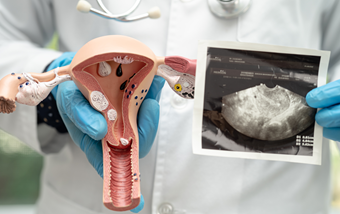Trying to conceive, and not succeeding, can be a very lonely and scary time, and I often felt as though we were living in limbo; we weren’t pregnant, nor were we formally infertile either. I didn’t know where I belonged and found it difficult knowing where to turn to find practical advice, alongside compassion and understanding; I was, wrongly, left feeling ashamed and confused.
When it comes to suspected infertility, it can, unfortunately, feel as though there is a distinct lack of guidance. NHS guidelines recommend that if a woman is under 36, couples should try to get pregnant naturally for at least a year before seeking medical advice. For many, myself included, that can feel like an incredibly long time to wait and, if any underlying conditions are then discovered, a frustrating waste of time.
If you think you could be struggling with infertility, some of these topics could be useful for you:
- How long does it take to get pregnant?
- When should you get a private fertility test?
- Do your research on infertility
- Talk about your fertility struggles
How long does it take to get pregnant?
On average it takes six months to become pregnant naturally, but even knowing that, it’s tough to not automatically jump to conclusions when it simply isn’t happening. On the other hand, it can feel overly paranoid to worry early on, so what should couples do if they think they might be infertile? Whilst there’s no clear-cut answer to that question, if conceiving is taking longer than you think it should, then you can absolutely take control of your own fertility, whatever stage you’re at in your journey.
When should you get a private fertility test?
Being a female with limited awareness of infertility, I’d assumed any issue would lie with me. I initially went to see my GP, when we’d been trying for six months and was advised to come back if we still hadn’t conceived within two years. After a further, agonising, few months, I decided I couldn’t wait any longer, so took myself off to be privately tested. It turned out that I was in good fertility health and, despite still not being pregnant, there was no reason why I shouldn’t conceive naturally.
I’d love to say that, for us, it merely was a matter a time, but it transpired we were suffering from male factor infertility and were finally referred for ICSI.
Alongside providing a diagnosis, we discovered that early testing also enabled greater options further down the line. On medical advice, and even before our treatment began, my husband made regular visits to our clinic to freeze his sperm. This was later used when, following an egg collection for one of our cycles, a fresh sample, regrettably, didn’t produce any viable spermatozoa for fertilisation. Had we not been prepared, that cycle would, devastatingly, have been cancelled.
Attend our FREE Online IVF Event with Live Nurse Q&A and get your questions answered by a Fertility Nurse Consultant.
ADDED BONUS - everyone who attends our webinar will receive £50 off an Initial Consultation and Scan at abc ivf.

Do your research on infertility
There’s a whole range of conflicting, weird and wonderful, information about how to get pregnant, and I’d highly caution against trusting everything you read! However, there is also a lot of sound medical advice too, which is readily available and really can make a difference when trying to conceive.
I also found a whole range of blogs and forums, books and social media accounts offering a huge amount of non-judgmental support, which helped to increase my knowledge bank and made me feel less alone. There’s an ever-growing TTC community out there to guide you through your whole journey, and I found online support immensely beneficial during our own struggles.
It’s all too easy to get overwhelmed and intimidated by only researching IVF but remember; not every couple struggling to conceive will need to embark upon that route. Some will conceive naturally, it really will just be taking more time whilst, for others, a less complicated course of treatment could be an option, depending on any diagnosis.
Talk about your fertility struggles
To peers, medical professionals and, most importantly, to each other. Struggling to conceive can put enormous pressure on a relationship and it’s crucial to remember that you’re a team; a duo who can be vulnerable, scared and angry together, without blame or shame.
At times it might feel as though trying to become pregnant is taking over everything you say, and eat, and read, and breathe, and do, but keep supporting, keep talking and keep remembering the people you are outside of trying to conceive.
Thinking you might be infertile is a deeply personal issue, which can be increasingly difficult to raise with others, but make sure you do; I learned that a solid support network and finding your tribe is invaluable; it doesn’t have to be a solo expedition.
We don’t yet talk about it enough, but becoming a parent isn’t a happy, easy or carefree experience for everyone; it can take longer than anticipated and doesn’t always go to plan. It’s, heartbreakingly, a time which, for so many of us, can feel intensely isolating and desolate, full of extreme hope, dashing despair and eternal, never-ending, waiting.
Please know that support is available, that any worries you have should never be belittled and neither should you ever be made to feel embarrassed or ashamed. And, if there’s one thing I learned from everything we went through; it’s that you are never alone on your infertility journey.
If you would like to discuss your own situation with one of our experienced and friendly patient support team then please give us a call on 0330 0580 800.




